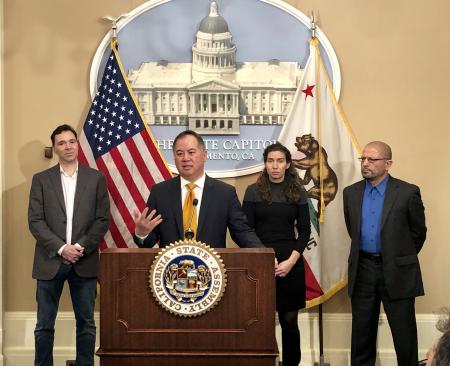 California could become the second state to accept virtual currency for tax payments
California could become the second state to accept virtual currency for tax payments
It’s hard to believe that paying taxes can be dangerous, but it is for California’s cannabis businesses, which cannot open bank accounts because the federal government still categorizes marijuana as an illegal substance. As a result, the $1 billion industry is run almost entirely on cash and businesses often have to hire armored trucks to deliver hundreds of thousands of dollars in tax payments to state and local governments. Under AB 953, Assemblymember Phil Ting (D-San Francisco) proposes to allow cryptocurrency as an accepted form of payment for cannabis-generated taxes.
“It’s very risky for cannabis businesses to transport large amounts of cash in order to pay their tax bills. Too many things can go wrong. Cryptocurrency offers a solution that’s safer and cheaper for the industry," said Ting, author of the landmark bill. "Lowering the cost to pay taxes will also help combat black market activity and encourage more businesses to get licensed.”
"Having to accept millions of dollars of cash for tax payments is a security concern and a significant cost for cities in California. AB 953 offers an innovative solution that cities have been waiting for," said Ally Medina, Mayor of Emeryville.
AB 953 also addresses volatility concerns by using stable coins -- virtual currencies collateralized by assets, such as the US Dollar. These currencies are pegged 1:1 to the US Dollar and will give both businesses and government agencies needed certainty to collect the exact amount of tax due. Sean Kali-Rae, President of the Silicon Valley Cannabis Association notes virtual currency provides a viable technological solution to eliminating cash and the associated risks from the industry.
There is growing excitement surrounding this pioneering way to solve tax payment and money transfer issues. “As the issuer of virtual currency that is backed 1:1 with the US Dollar, we see tax remittances from cash intensive businesses as a significant pain point we can help solve for the state of California” said Dan Schatt, Board Member of the Blockchain Advocacy Group and CEO of the Universal Protocol Alliance.
In November 2018, Ohio began accepting business tax payments via virtual currency.
# # # # #